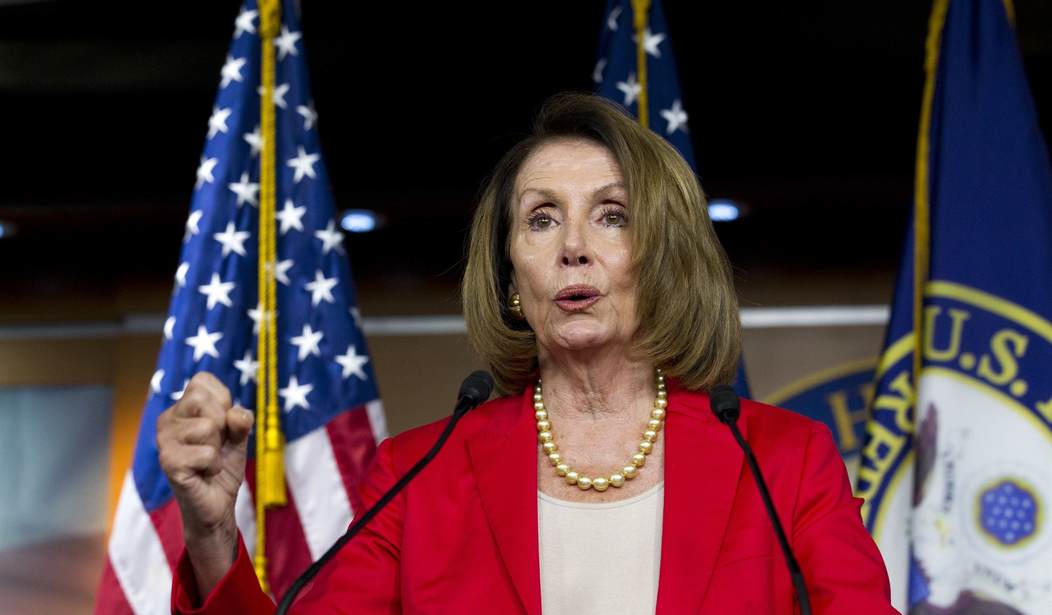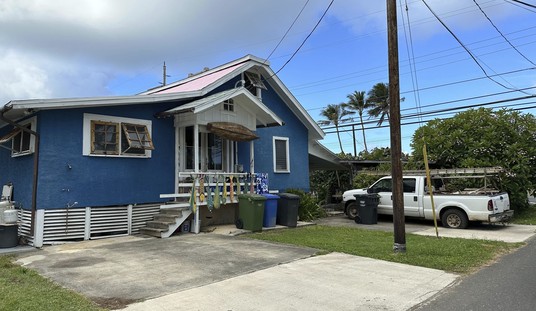The polls are saying Democrats have a commanding lead in the national generic ballot for the 2018 midterms, but it’s quite a different story when you look at the 40+ competitive districts that will decide the outcome of who control the House of Representatives. In these areas, the generic ballot advantage for Democrats is “statistically insignificant.” It’s a dead heat. The blue wave could very well happen, though it’s a GOP lock in the Senate. Republican could increase their majority to 53 or 55 seats, though the latter is the rosiest projection. The Washington Post’s poll added that the booming economy and border security could give the GOP a boost [emphasis mine]:
Heading into Tuesday’s critical midterm elections, Democrats retain their advantage in the battle for the House, but Republicans could be buoyed by increasingly positive assessments of the economy and by President Trump’s harsh focus on the issues of immigration and border security, according to a new Washington Post-ABC News national poll.
The poll finds that registered voters prefer Democratic candidates for the House over Republican candidates by 50 percent to 43 percent. That marks a slight decline from last month, when Democrats led on the generic congressional ballot by 11 points, and a bigger drop from August, when they enjoyed a 14-point advantage.
Democrats’ also have a 51-to- 44 percent advantage among likely voters identified by The Post. That seven-point margin, which is in line with other polls taken in the past two weeks, puts Democrats roughly within range of what they probably will need in the overall national vote for the House to capture a majority from the Republicans, based on calculations from previous midterm campaigns.
[…]
Among registered voters, 71 percent say the economy is good or excellent, up from 60 percent in August. Those who give the economy positive ratings favor Republican candidates for the House by 54 to 40 percent, wider than the 49 to 42 percent margin in August.
Similarly, more than 8 in 10 adults say they are either doing about as well financially as they were before Trump became president (60 percent), or are doing better (25 percent). Just 13 percent say they are not as well off. That 13 percent figure is also among the lowest in 18 years; the last time it dropped that low was in the final year of President Bill Clinton’s administration, when a boom in technology fueled a rising economy.
[…]
Those who rank immigration as one of the most important issues in the election favor Republicans over Democrats by 12 points when choosing a generic congressional candidate, though the gap among this group is tenuous given its large error margin. For those who say border security is one of their top issues, Republicans lead Democrats by 42 points on the House vote.
Those groups who have shifted toward Republicans on the issues of immigration since early October include white men without college degrees, voters over age 65 and voters who live in rural areas — all staples of the coalition that elected the president two years ago.
Recommended
Even CNN reporter Jeff Zeleny said that Democrats should hit the brakes a bit and temper the confidence because he doesn’t see a blue wave coming (via NTK Network):
“It’s completely on the edge,” Zeleny said, adding that many people are surprised with House Minority Leader Nancy Pelosi’s (D-CA) recent confidence that Democrats would retake the House.
“I look at places in the middle of the country in those new Trump states. Look at Iowa, look at Michigan, look at Wisconsin. A couple races I’ll be watching on Tuesday are the Iowa races,” Zeleny said. “If Democrats win both of those, it seems very difficult for Republicans to hold the majority.”
“But you know the idea of a blue wave, stop thinking about that. I don’t think it’s going to happen,” Zeleny added.
Talk about throwing some cold water on your dreams, Nancy Pelosi.
























Join the conversation as a VIP Member